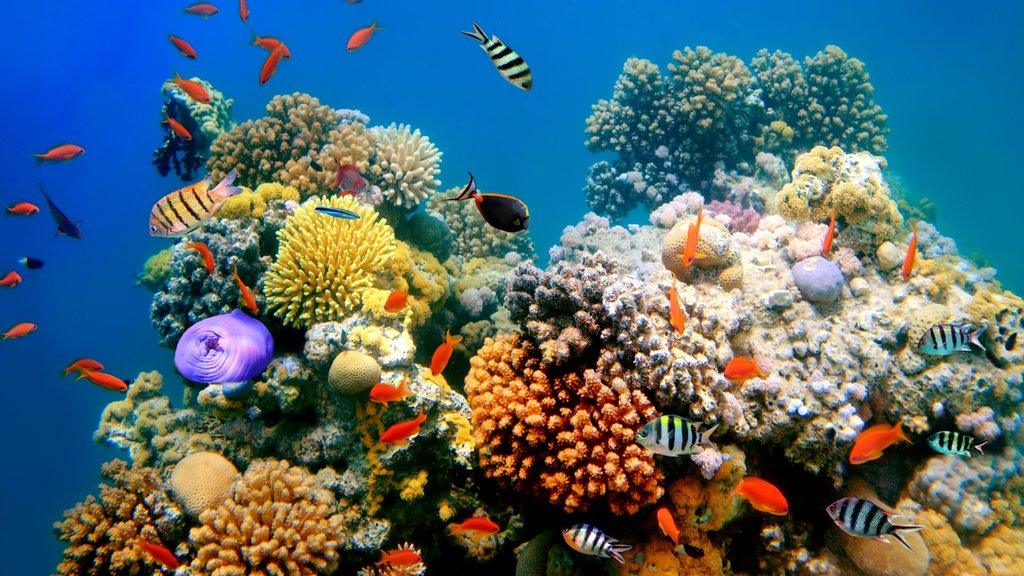Why too much noise is bad news for coral reefs
- Published
- comments
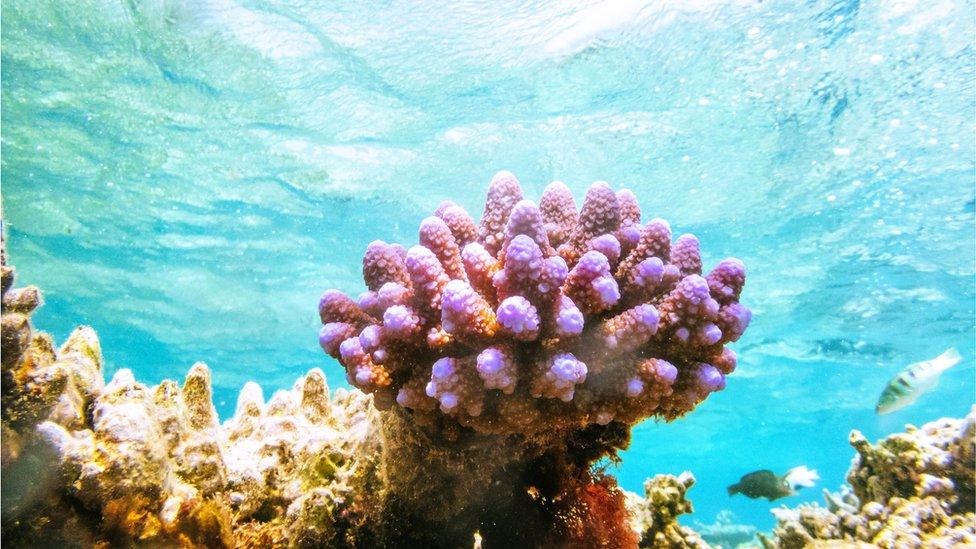
The Great Barrier Reef has often been in the news when it comes to the problem of coral bleaching but now researchers say it's facing another problem - too much noise!
A new study found that more fish hatchlings survived the breeding season in quieter areas than noisier ones.
Hatchlings in the quiet areas were also bigger, which could help give them a better chance of survival as they grow older.
Researchers say that protecting reefs from excess noise could help support these ecosystems in the face of the many threats they face.
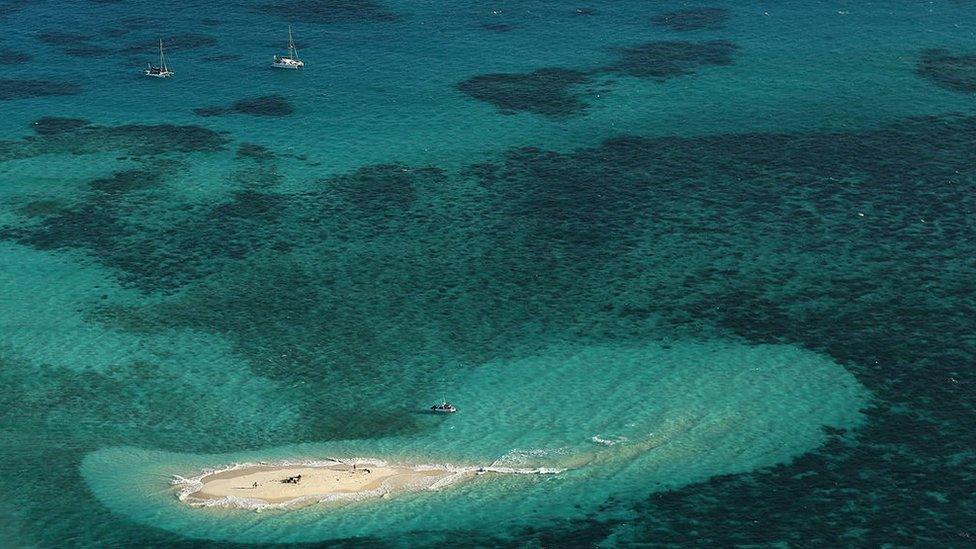
An aerial view of Vlassof Cay in Australia's Great Barrier Reef
Sophie Nedelec, a marine ecologist at the University of Exeter was one of those involved in the study.
She said ability to hear may help fish do everything from defending their territory to finding a good place to live.
One of the most commonly heard noises came from motorboats.
Although there are many sounds in the water, boats are still much louder and because sound travels better underwater than in the air, even faraway boats can seem very loud.
What did the scientists discover?
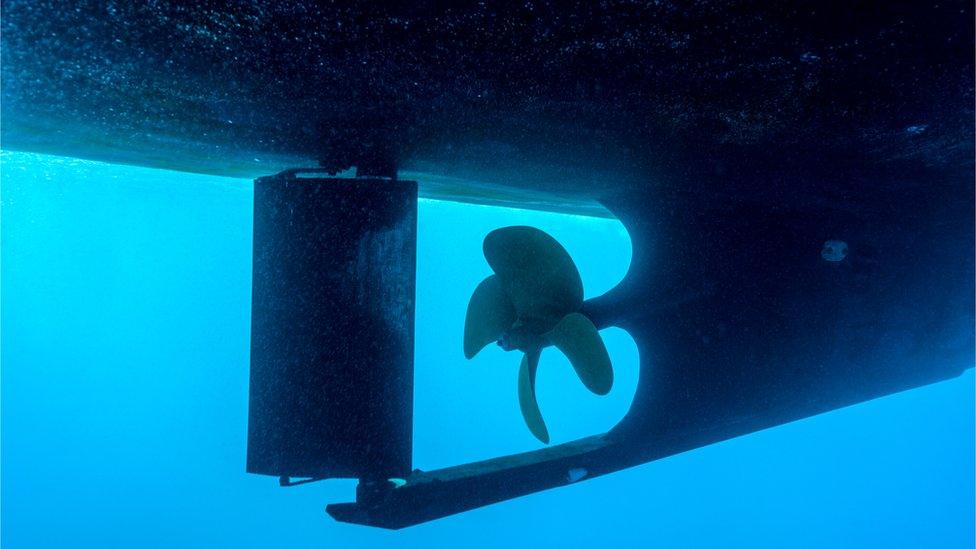
Motorboats are one of the main causes of noise that affect the fish below
The team set up six zones around a field station in the reef - three where boats around the station could move freely and three where boats were banned.
They studied the nests of a fish called the spiny chromis, checking on hatchlings and measuring them over the course of the breeding season to see how many survived and how they were growing.
The results were published on Friday in Nature Communications.
In quiet zones, 65 percent of the nests still had baby fish by the end of the season, but in the noisy zones it was only 40 percent.
Hatchlings in the quieter areas were also larger than those in the noisy zones, which makes them less likely to get eaten by predators.
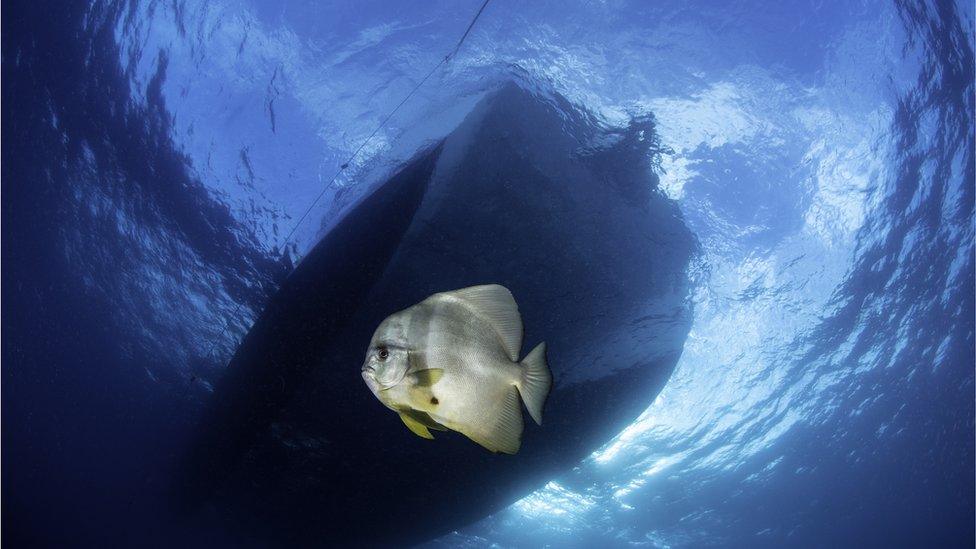
The team also found that the noise can also affect indirectly affect the levels of oxygen the fish are able to receive.
This is because when nests are in hidden spots like reefs, they typically don't get a lot of water moving in and out, which can reduce oxygen levels.
Adult fish will often wave their fins to keep the water flowing and the oxygen coming in, but this is disrupted by boat noises.
Sophie Nedelec said that the levels of oxygen available can also have an impact on growth rates between the hatchlings in noisy and quiet zones, while noise can also cause more stress to fish affecting their long-term health.
What can be done to help improve the situation?
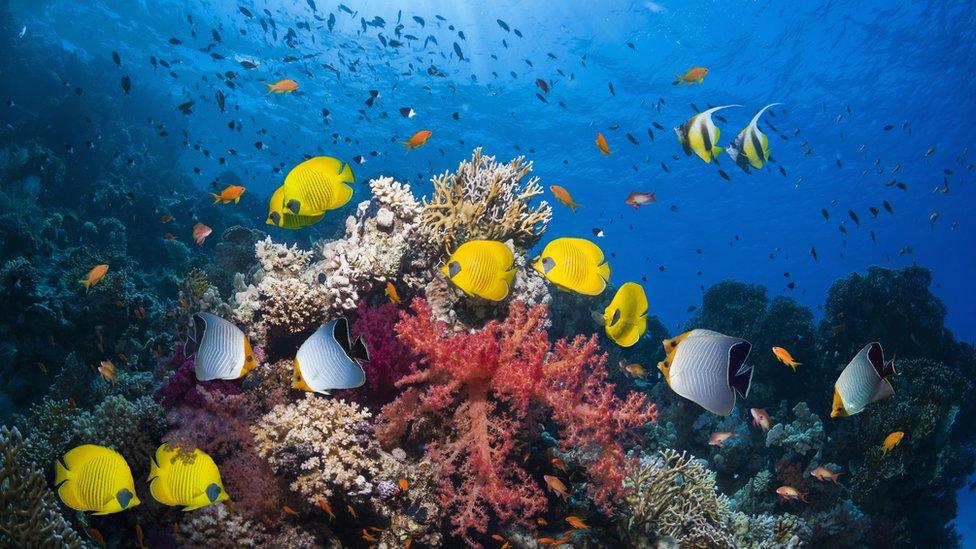
Dr Nedelec said that she was pleased to find out that "reducing the motorboat noise was improving the survival" for the fish.
She is now hoping to find out if the quiet zones put in place when the research was being carried out could become a more permanent fixture and on a wider scale in order to support reef fish.
She acknowledge that while we should be doing "absolutely everything that we can" to address the climate crisis, that's "not always easy".
But said something like reducing noise could help reefs in the meantime, and that all that was needed to was to "drive further away from reefs, and if we do go near reefs, then just to go a bit slower".
- Published7 December 2020

- Published9 April 2020
